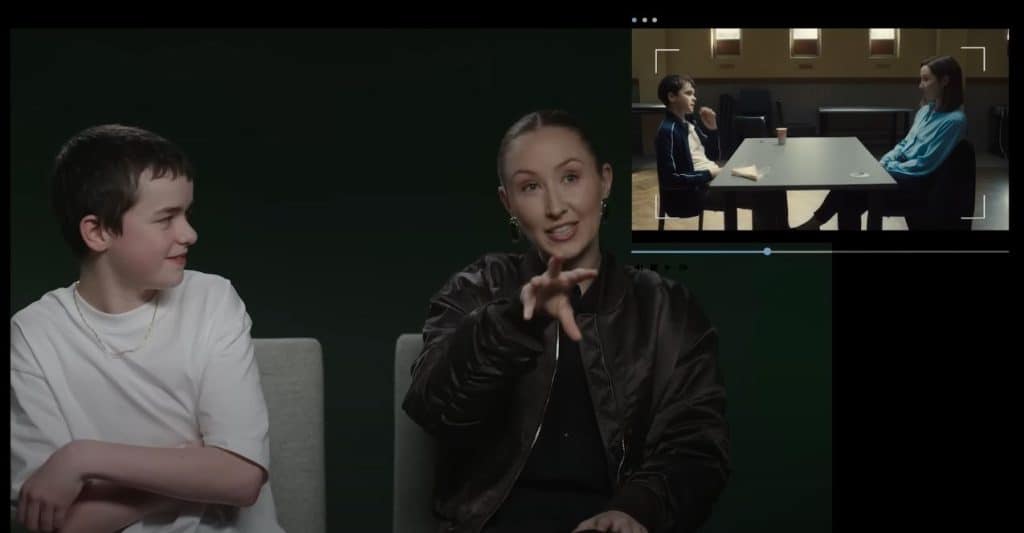In a time when the lines separating fact from fiction are becoming increasingly hazy, Netflix’s Adolescence strikes like a lightning strike: it’s piercing, blazing, and unapologetically real. This four-episode British drama explores much more than a teenage crime; it analyzes the environment that encourages alienation, toxic masculinity, and disconnection.
Although Adolescence is a series that raises many more questions than it does answers, it is remarkably well-executed and emotionally compelling from the very first frame. It challenges the audience to do more than just watch; it challenges them to witness, as each episode is shot entirely in a single take, a stylistic decision that heightens the tension. It provides parents with a sobering, occasionally upsetting, but always crucial chance to start a conversation that is rarely simple.
Adolescence (2025) – Parents Guide Summary
| Category | Details |
|---|---|
| Title | Adolescence (2025, Netflix) |
| Content Rating | TV-MA (United States), 15+ (UK), varies by region |
| Sex & Nudity | Mild – Some sexual references, no graphic content |
| Violence & Gore | Mild to Moderate – Some physical assault scenes, including a non-graphic stabbing |
| Profanity | Severe – Frequent use of strong language, including “f***”, “twt”, “btch”, and others |
| Alcohol, Drugs, Smoking | None |
| Frightening/Intense Scenes | Moderate – Emotional distress, police interrogation, family breakdowns |
| Main Themes | Toxic masculinity, teen violence, social media influence, accountability, generational disconnect |
| Recommended Viewing Age | 15+ |
| Link to Full Guide | IMDb Parents Guide – Adolescence |
Why You Should Watch This Series
Adolescence is fundamentally about the context, not just the offense. It examines the nuanced ways in which a society can fail its young people. It becomes especially helpful for parents who want to comprehend the underlying forces influencing Gen Z’s worldview because it illustrates everything from peer alienation to online radicalization.
Adolescence feels both urgent and relevant in the rapidly changing digital landscape, where role models are frequently replaced by influencers and online echo chambers can become dangerously isolating. It depicts the emotional vulnerability of boys negotiating masculinity, peer dynamics, and identity in the TikTok age through the eyes of a 13-year-old boy accused of murder.
What Do Parents Need to Expect?
Despite not being overtly violent or sexually explicit, the show has a strong emotional impact. Even adults may need some time to process the themes, and the profanity is particularly strong. But that’s also what makes it a great way to start a conversation.
Adolescence challenges us to consider why things happen by fusing narrative realism with intensely emotional storytelling. It encourages parents to consider issues such as:
- Are we really listening to our teens?
- How often do we mistake independence for disconnection?
- What happens when their online world becomes more real than their physical one?
Talk With Your Teen About These Topics
✅ Social Media Influence: How does it shape their identity, relationships, and sense of belonging?
✅ Masculinity & Gender Norms: What pressures are boys facing today that weren’t there a generation ago?
✅ Parental Presence: Are you emotionally available? Or has life distracted you from being fully present?
✅ Mental Health & Peer Pressure: When do they feel safest to open up—and when do they shut down?
These aren’t easy questions. But shows like Adolescence provide the entry point.
The Key Takeaway: Watch Together, Have an Open Discussion
The media has evolved into a mirror in recent years, one that frequently reflects the truth but isn’t always flattering. That type of introspection is provided by adolescence. Remarkably similar to actual cases worldwide and remarkably explicit in its intent, it serves as a reminder that passivity, denial, and silence are risky indulgences when parenting teenagers.
This is not only suggested viewing for contemporary families, particularly those with children ages 13 and up, but it is also required. Take a look. But above all, have a conversation about it. Because there is no such thing as overcommunication when it comes to raising teenagers in 2025.



